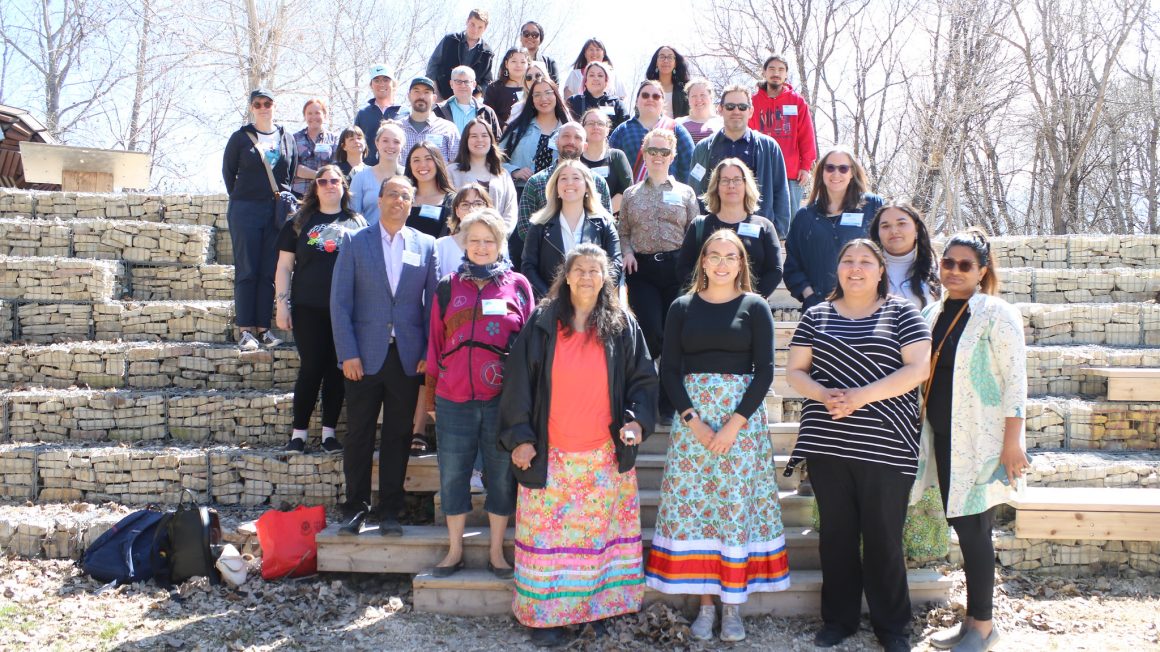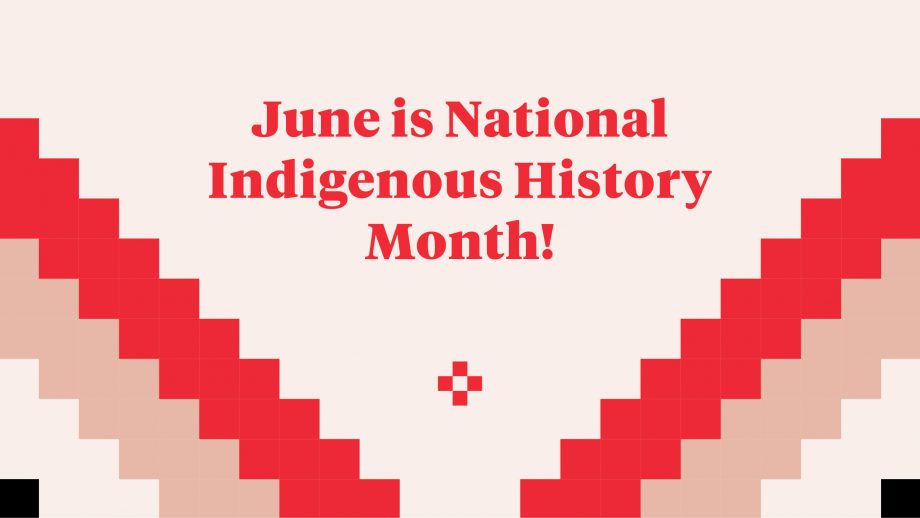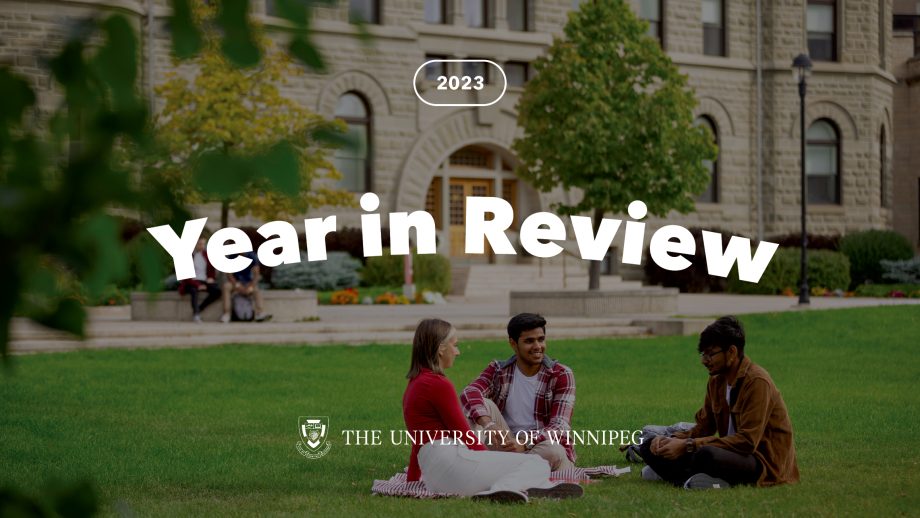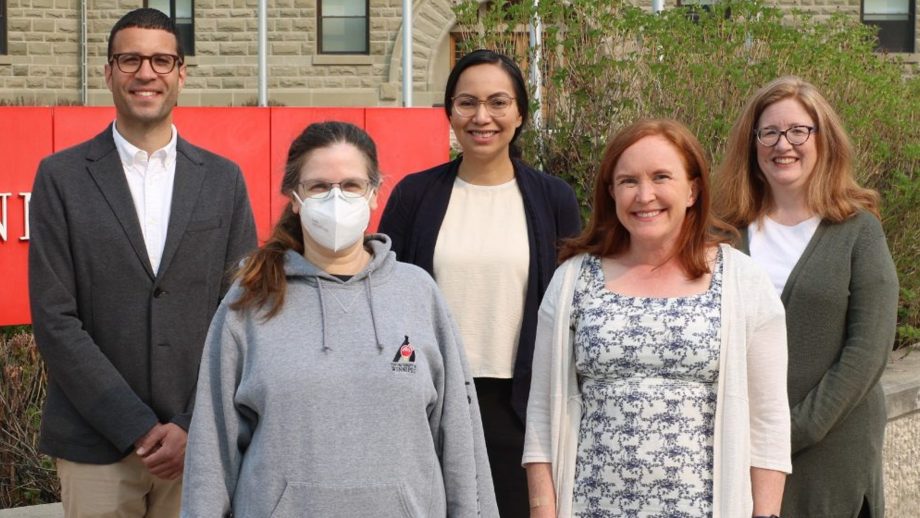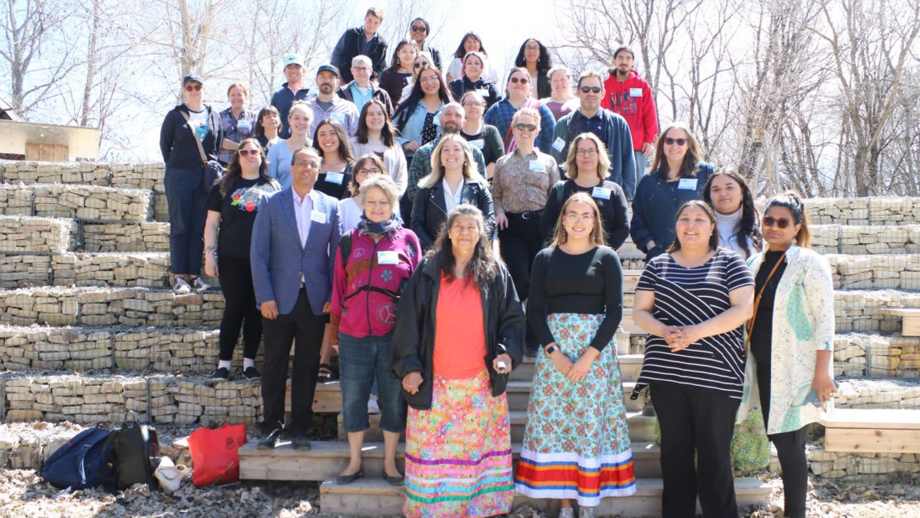The University of Winnipeg’s Faculty of Graduate Studies is celebrating the largest-ever cohort of the Indigenous Summer Scholars Program (ISSP).
An opening ceremony was held Thursday, May 4 at The Forks for the 20 student scholars participating in this year’s program. Previously, the program’s largest cohort was 13.
Elder Sharon Pelletier shared prayers and teachings and opened a sharing circle that gave scholars and their faculty mentors an opportunity to discuss the applied research projects they will embark on over the next 12 weeks, culminating in an August colloquium. The scholars will also participate in weekly workshops and events.
Working on a research project with support and mentorship gives scholars a more accessible place to start.
Dr. Julie Chamberlain
The ISSP, now in its seventh year, is a paid summer research program that engages Indigenous students in their third or fourth year of undergraduate study in a variety of mentored research projects while they explore the possibilities of graduate studies.
The ISSP is one of two Indigenous Pathway Programs at UWinnipeg. Students and mentors from the four-week Pathway to Graduate Studies (P2GS) program, which focuses on STEM research opportunities, also took part in the event.
This year’s ISSP research projects delve into topics as diverse as urban planning, lunar and Martian exploration, Inuit language practices, and the effects of carbon dioxide on fish.
Amy Pitzel, a third-year biology student and ISSP scholar, will conduct genetic research on the invasive sea lamprey, under the guidance of her faculty mentor Dr. Sara Good, Professor in the Department of Biology. The project will contribute to a body of research on how genetic modifications can be used to reduce invasive species populations in the Great Lakes.
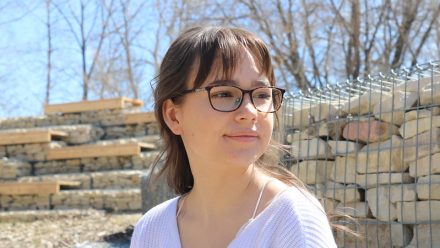
ISSP scholar Amy Pitzel, a third-year biology student, will conduct genetic research on the invasive sea lamprey, under the guidance of faculty mentor Dr. Sara Good, Professor in the Department of Biology.
“Being able to work through lab procedures from start to finish is something that I have not done too many times, as a vast amount of the background work in an undergrad lab is already done before you begin the procedure,” Pitzel said. “Working in Dr. Good’s lab will help me strengthen my laboratory skills and grow in an academic manner.”
“We are very excited to have Amy working in our lab group,” Dr. Good said. “It’s a wonderful opportunity to learn more about the integration of Indigenous values and students into research. This particular project will train Amy in both laboratory and bioinformatics skills in genetics that have applications to fisheries management.”
ISSP scholar Sheldon Valiquette, a recent graduate, will research the politics of historical buildings ‘gifted’ to Indigenous groups. Valiquette will be mentored by Dr. Julie Chamberlain, Assistant Professor in the Department of Urban and Inner-City Studies. The project will consider the 2022 transfer of the former Hudson’s Bay Company store in downtown Winnipeg to the Southern Chiefs’ Organization.
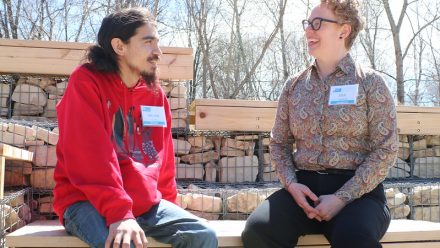
ISSP scholar Sheldon Valiquette discusses his research project with faculty mentor Dr. Julie Chamberlain, Assistant Professor in the Department of Urban and Inner-City Studies.
“The ISSP will help me improve my skills as a researcher and get me prepared for graduate studies,” Valiquette said. “One of the primary values of ISSP is that it is geared toward Indigenous scholars, which is a perspective not often seen in academia.”
Dr. Chamberlain said the ISSP is structured to support faculty, as well as students.
“There’s an urgent need to open doors for Indigenous students,” Dr. Chamberlain said. “Mentorship is a key part of this, and as faculty members, there aren’t many opportunities for us to get support and guidance to do this. Often the responsibility for change and progress is downloaded onto individual faculty members to figure out, and this is a way to approach research mentorship with some collective structure and support.”
The ISSP also creates positive ripple effects that outlast the program’s 12-week run time.
“It’s an important part of the long-term process of Indigenizing the University and transforming it from its colonial roots in whatever ways we can,” Dr. Chamberlain said. “For scholars, the opportunity to work on a research project can be a wonderful learning experience that shapes their life and career options. Research experience can open doors to employment opportunities down the road, and prepare scholars for graduate studies. Working on a research project with support and mentorship gives scholars a more accessible place to start.”
For more information on the Indigenous Summer Scholars Program, contact Mekala Wickramasinghe, Graduate Studies Recruitment and Training Officer, at mek.wickramasinghe@uwinnipeg.ca.

